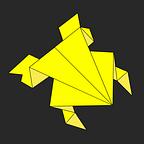DSL: Court Decision on Banning 17 Websites Is in Violation of Ukrainian and International Law
Court decision obliging the Internet service providers to block access to 17 websites, including blogs.korrespondent.net, enigma.ua, informator.news and others contradicts both to effective Ukrainian legislation and international standards in the area of freedom of expression. It is an opinion of the Digital Security Lab lawyers.
On 31 July 31, the text of the decision of Pecherskyi District Court as of 23 July 2019 was published in criminal case #757/38387/19-к. It requested to seize intellectual property rights arising from Internet users using 17 websites, as the court instructed the major Ukrainian Internet service providers to deny access to these websites
According to Maksym Dvorovyi, Digital Security Lab lawyer, such case law opens up opportunities for extremely serious abuses and violations of freedom of expression and freedom of the media.
First, it is difficult to imagine how Internet users may have property rights to the texts they read and access to them online. In addition, although the Criminal Procedure Code prescribes that seizure may be imposed on the property of any legal entity if it is material evidence, the court has not established what legal entities own the websites that the court considers as evidence in the criminal proceedings.
Secondly, the court suggests imposing seizure by obliging a number of major Ukrainian ISPs to block access to the respective websites. At the same time, it should be recalled that according to effective Ukrainian legislation, banning the entire website is only allowed in one case — if it is involved in distribution of child pornography (see Article 39 of the Law of Ukraine “On Telecommunications”). It is also permitted to restrict access to the copyright objects of broadcasting organizations through a special procedure provided by the Law of Ukraine “On Copyright and Related Rights”. Given that Ukrainian law simply does not provide for such a possibility of blocking websites, this measure is not a “measure set forth by law” in the context of Article 10 of the European Convention on Human Rights (see Ahmet Yildirim vs. Turkey) and violates the right to freedom of expression.
Third, the text of the court order itself lists URLs of 17 websites that contain information that — according to the prosecutor — bears “signs of solicitation of money from victims, distribution of incriminating articles and other defamation.” Even if one considers that there is a possibility of such a criminal prosecution measure, defamation (decriminalized under effective law) does not fall within the categories of content that are subject to blocking by international standards. Moreover, the court decision restricts access not only to pages containing potentially harmful materials, but to the entire platforms. Such a restriction is clearly disproportionate, since blocking the entire website is an extraordinary measure that only applies in case if the website contains mass violation of legislation.
Note: On 15 May 2017, President P. Poroshenko enacted the first NSDC decision on sanctions # 133/2017, which, in particular, contains a “ban on Internet providers to provide Internet access to users of web-resources,” including popular social networks Vkontakte, Odnoklassniki, Yandex, mail.ru and others. Later on, two more NSDC Decisions # 126/2018 and # 82/2019 were put into effect. They put the websites of the so-called “DPR,” “LPR,” Crimea, Russia, etc. under ban. Ukrainian human rights and media organizations have repeatedly called for the abandonment of unlawful restrictions on the Internet and for legitimate and transparent ways to combat Russian propaganda and cyberattacks.
On 31 July, the Digital Security Lab published a research on Internet blocking proving that the Internet service providers started blocking less websites from the sanction list.
